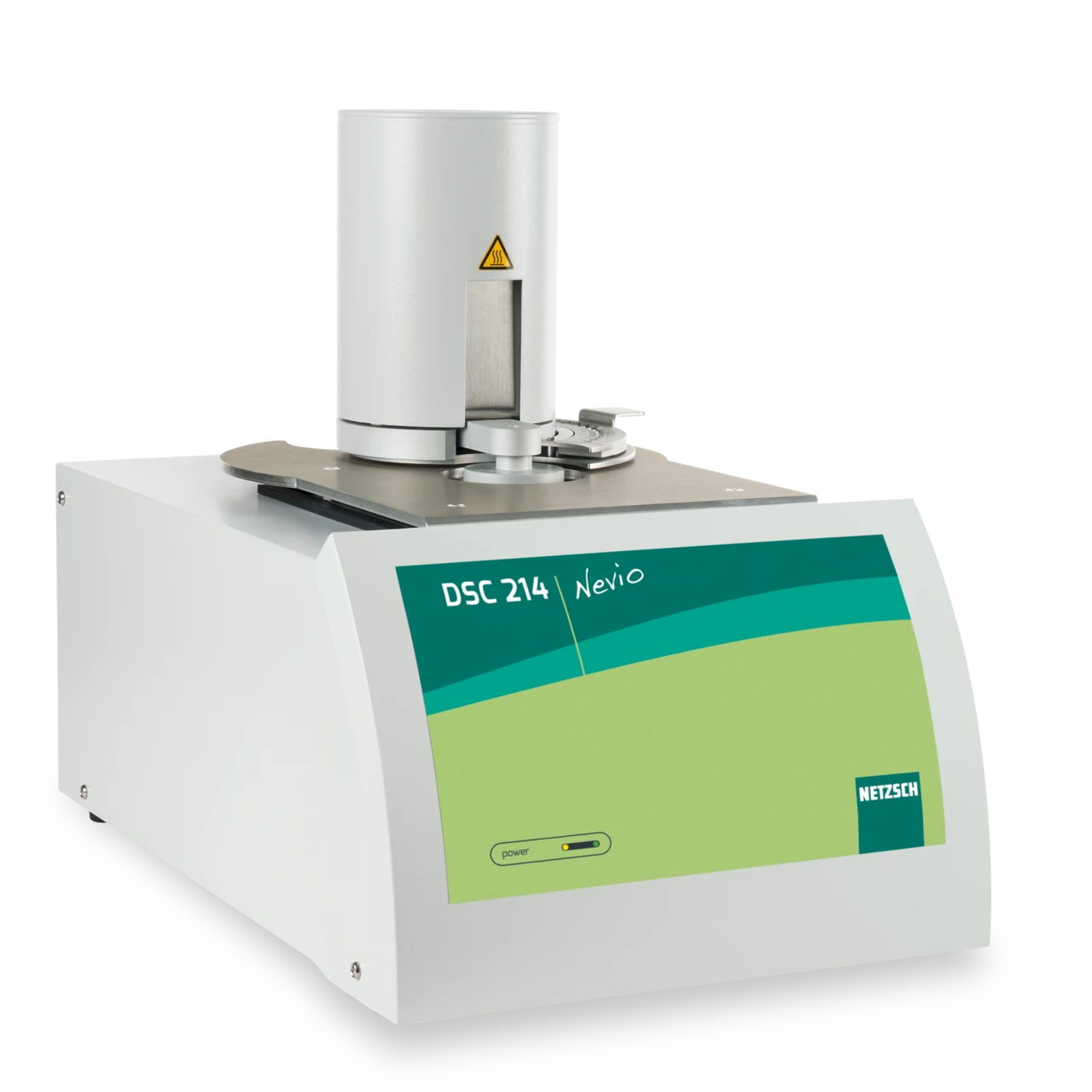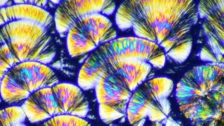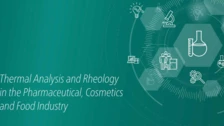…by means of the DSC 214 Nevio ‒ the fastest heat-flux DSC instrument on the market.
Information obtained by differential scanning calorimetry (DSC):
- Melting Temperatures and EnthalpiesThe enthalpy of fusion of a substance, also known as latent heat, is a measure of the energy input, typically heat, which is necessary to convert a substance from solid to liquid state. The melting point of a substance is the temperature at which it changes state from solid (crystalline) to liquid (isotropic melt).Melting temperatures and enthalpies
- PolymorphismPolymorphism is the ability of a solid material to form different crystalline structures (synonyms: forms, modifications).Polymorphism
- CrystallizationCrystallization is the physical process of hardening during the formation and growth of crystals. During this process, heat of crystallization is released.Crystallization temperatures and enthalpies
- Glass Transition TemperatureThe glass transition is one of the most important properties of amorphous and semi-crystalline materials, e.g., inorganic glasses, amorphous metals, polymers, pharmaceuticals and food ingredients, etc., and describes the temperature region where the mechanical properties of the materials change from hard and brittle to more soft, deformable or rubbery.Glass transitions
- Solid-solid interactions (e.g., compatibility)
- Phase diagrams
- Eutectic PurityA eutectic system is a homogeneous mixture of 2 components that melts and solidifies like a pure substance.Eutectic purity
- Solid-fat content
- Reaction temperatures and enthalpies
- Curing (Crosslinking Reactions)Literally translated, the term “crosslinking“ means “cross networking”. In the chemical context, it is used for reactions in which molecules are linked together by introducing covalent bonds and forming three-dimensional networks.Cross-linking reactions (Curing (Crosslinking Reactions)Literally translated, the term “crosslinking“ means “cross networking”. In the chemical context, it is used for reactions in which molecules are linked together by introducing covalent bonds and forming three-dimensional networks.curing)
- OxidationOxidation can describe different processes in the context of thermal analysis.Oxidation-induction time and temperature (Oxidative-Induction Time (OIT) and Oxidative-Onset Temperature (OOT)Oxidative Induction Time (isothermal OIT) is a relative measure of the resistance of a (stabilized) material to oxidative decomposition. Oxidative-Induction Temperature (dynamic OIT) or Oxidative-Onset Temperature (OOT) is a relative measure of the resistance of a (stabilized) material to oxidative decomposition.OIT (IsothermalTests at controlled and constant temperature are called isothermal.isothermal), Oxidative-Induction Time (OIT) and Oxidative-Onset Temperature (OOT)Oxidative Induction Time (isothermal OIT) is a relative measure of the resistance of a (stabilized) material to oxidative decomposition. Oxidative-Induction Temperature (dynamic OIT) or Oxidative-Onset Temperature (OOT) is a relative measure of the resistance of a (stabilized) material to oxidative decomposition.OIT (dynamic), Oxidative-Induction Time (OIT) and Oxidative-Onset Temperature (OOT)Oxidative Induction Time (isothermal OIT) is a relative measure of the resistance of a (stabilized) material to oxidative decomposition. Oxidative-Induction Temperature (dynamic OIT) or Oxidative-Onset Temperature (OOT) is a relative measure of the resistance of a (stabilized) material to oxidative decomposition.OOT)
Features of the DSC 214 Nevio:
Intelligent software – AutoEvaluation and Identify
AutoEvaluation, a unique feature of the Proteus® software, evaluates EndothermicA sample transition or a reaction is endothermic if heat is needed for the conversion.endothermic or ExothermicA sample transition or a reaction is exothermic if heat is generated.exothermic effects fully automatically with just one click. The result of this evaluation can serve as a second opinion when assessing samples of unknown composition. Identify is a database system for curve recognition and interpretation. The included libraries currently contain more than 1200 entries. However, customers can easily create their own libraries and expand them with own measurements.
Compactness
With its space-saving design, the DSC 214 Nevio fits into even the smallest of labs.
Everything in one package
Even the basic version of the instrument comes with everything necessary to perform measurements correctly and evaluate them successfully.
Ready if you need it
Using the SetPoint function, it is possible to schedule the day and time when the cooling device and the gas flow should be active, so the DSC is always ready for work right on time.
Perfectly synchronized sensor/crucible system
A Concavus® pan, which features a concave outer bottom, forms a clearly defined, ring-shaped contact zone when positioned on the sensor. This results in optimum reproducibility.
The automatic sample changer (ASC) works overnight or during the weekend
Up to 19 samples – either belonging to a single series or independent of each other – can be handled with the optional automatic sample changer without operator intervention. This frees up time to focus on other important tasks.
The Proteus®Protect software meets the requirements of 21 CFR Part 11.

Request a Quote
Technical Data
Temperature range (max.)
Measuring range
Max. cooling rate/max. heating rate
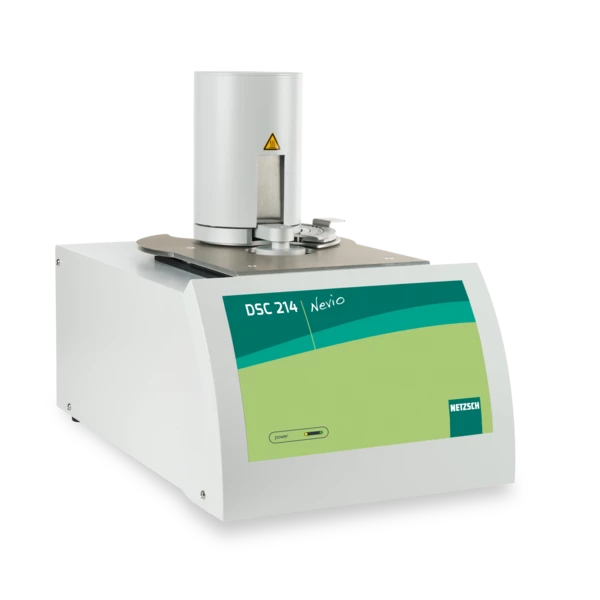
Enthalpy accuracy:
< 1%**
TGA resolution:
n/a
Indium Response Ratio (*):
> 100
Exchangeable sensors:
n/a
Cooling options:
Air compressor: RT to 600°C
Compressed air: < 0°C to 600°C
Intracooler: -70°C to 600°C
Liquid nitrogen: -170°C to 700°C
Gas atmospheres:
Inert, oxidizing, static and dynamic
Mass flow controller for purge/protective gas:
3, integrated (0 to 250 ml/min)
Gas flow regulation:
Software-controlled
Automatic Sample Changer (ASC):
Yes (optional)
* minus weight of crucible
** for indium
Software:
min. Proteus® 8
Proteus® software extensions included:
SmartMode
ExpertMode
AutoCalibration
(Advanced) BeFlat®
AutoEvaluation
Identify
Proteus® software extensions (optional):
Temperature modulation
Specific Heat Capacity (cp)Heat capacity is a material-specific physical quantity, determined by the amount of heat supplied to specimen, divided by the resulting temperature increase. The specific heat capacity is related to a unit mass of the specimen.Specific heat capacity (cp)
Proteus® Protect
Purity Determination
Advanced Software extensions (optional):
Peak Separation
Kinetics Neo
Thermal Simulations
Size (W x H x D) – incl. ASC, without physical connections:
350 mm x 445 mm x 560 mm
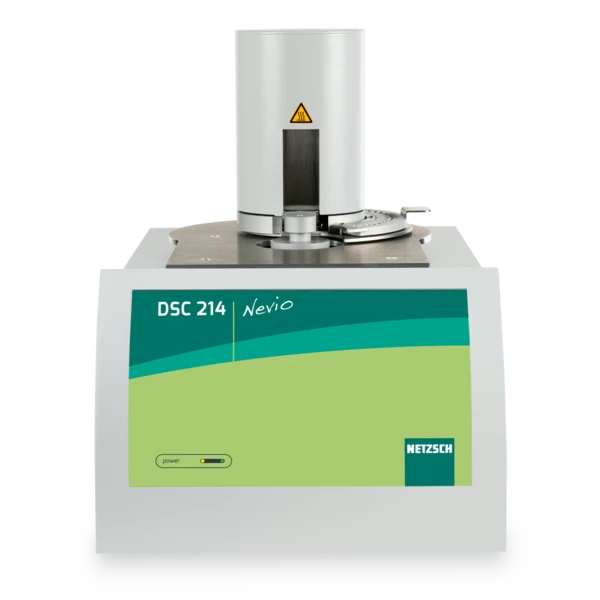
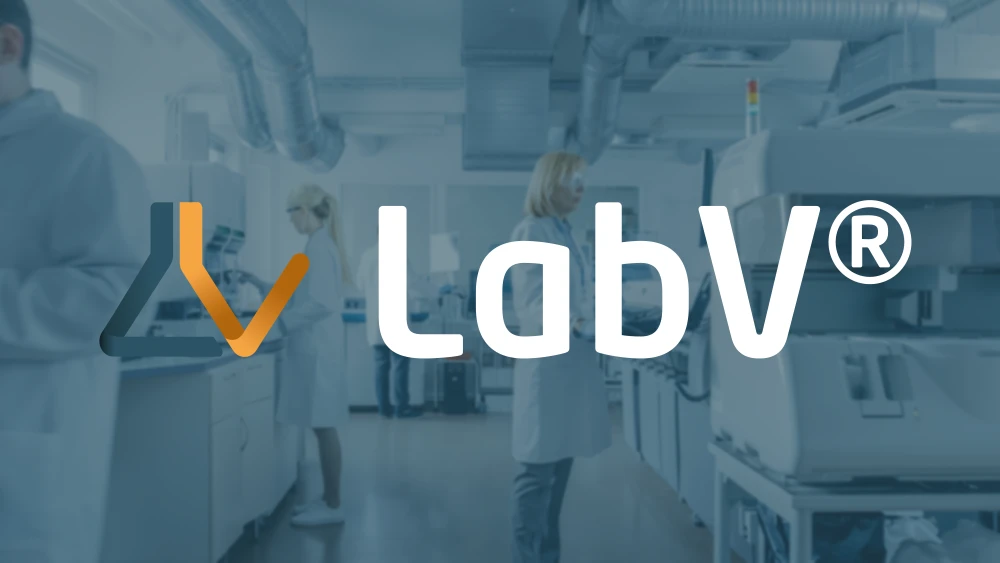
This instrument is LabV®®️-primed
LabV®®️ takes the data from your analytical instrument: It automatically imports all measurement data into a central and secure database solution, the LabV®®️ software. This allows you to visualize the data in LabV®®️ and to make them searchable. Your data will now be accessible from anywhere. Moreover you have the possibility to generate reports.
Application Literature

